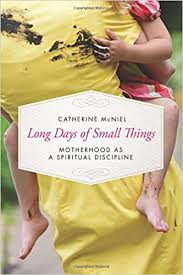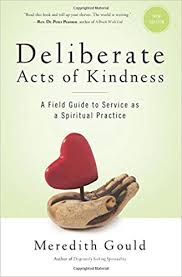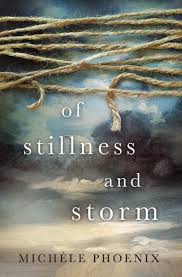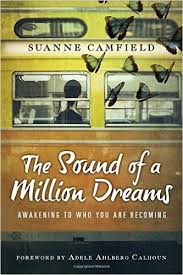Regular readers of this blog know that my family and I have experienced a number of nightmarish church experiences over the last three and a half decades. Not too long ago, someone asked me why I didn’t just exit the Church at one particularly miserable juncture twenty or so years ago and just keep walking.
My short answer came from Simon Peter’s words to Jesus: “Lord, to whom shall we go? You have the words of eternal life.” (John 6:68) Though I don’t believe that showing up in a church for weekly services makes a person a believer any more than a wrench in the garage means there’s a mechanic in the house, I also believe faith is not a d-i-y enterprise. It is formed in community. And by “community”, I mean that it is not a a spectator sport, which, sadly, is the message many churches pass on each week to their audiences er, rank-and-file congregants.
My longer answer to the question has come as I’ve reconciled Peter’s exclaimed revelation with intentionally seeking out people who understand that they are the Church. Most all have maintained connection with a local congregation, but that connection is not their spiritual destination. Some of these people are individuals I’ve met on my journey: moms, hospice nurses, grocery store clerks, writers, engineers, children, janitors, grandfathers, teachers. The example of these people has shown me what it is to be the Church in ways that the veritable cavalcade of power-hungry or sex-addicted congregational leaders who’ve marched through my life have not. When Paul said, “Follow my example, as I follow the example of Christ” (1 Cor. 11:1), he told me that if I could find someone following the example of Jesus, I needed to pattern my life after what I saw expressed of his character in theirs.
Those role models aren’t always flesh and blood human beings (though they’re definitely the best kind). Sometimes, I meet them in books. Biographies, histories and memoirs have implanted imitators of Christ in my soul spanning two millennia and too many places to count in this world. Their stories are a close-up snapshot of some of the great cloud of witnesses who are the Church. Just like I am, and just as I long to be.
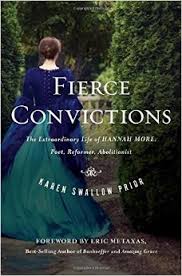 Recently I had an opportunity to meet a new faith hero. Her name is Hannah More. Born more than 250 years ago in England, More served God and countless others using her brilliant mind and willing heart. The words that flowed from her pen graced stage and page. She was involved in bringing education to underserved people in her city. Her relationships with key voices in the nascent abolitionist movement, including William Wilberforce, were instrumental in bringing about stunning social change in the caste-bound culture of the day.
Recently I had an opportunity to meet a new faith hero. Her name is Hannah More. Born more than 250 years ago in England, More served God and countless others using her brilliant mind and willing heart. The words that flowed from her pen graced stage and page. She was involved in bringing education to underserved people in her city. Her relationships with key voices in the nascent abolitionist movement, including William Wilberforce, were instrumental in bringing about stunning social change in the caste-bound culture of the day.
My friend Karen Swallow Prior has written an accessible, inspiring biography of More entitle Fierce Convictions: The Extraordinary Life Of Hannah More – Poet, Reformer, Abolitionist (Nelson, 2014). Prior’s meticulous research and nimble words introduce modern readers to a human being, complete with flaws, struggles and blind spots, who loved God with a single minded devotion that allowed her life to be used by him for the benefit of others. In a time where women’s roles were prescribed within a very limited, specific framework, the never-married More managed to create a space for her life and work that functioned within that framework while stretching its margins simply because she was compelled to follow God where he led.
More was determined to make Jesus known, and she wasn’t willing to compromise in order to do so. Her words sound as though they could have been spoken today:
The inculcation of the Christian faith, More argued, should not be left to personal whim or mere chance. “Do you persons, then, become musicians, and painters, and linguists, and mathematicians, by early study and regular labour; and they shall become Christians by accident?” she asked. She cautioned, too, against a sugar-coated Christianity that made false promises of ease and pleasure from its embrace. She called such deceptions an “error into which even some good people are apt to fall” in their eagerness to attract adherents to the faith. “In order to allure” young people to Christianity, she cautioned, “they exhibit false, or faint, or inaequated views of Christianity; and while they represent it, as it really is, as a life of superior happiness and advantage, they conceal its difficulties.” The results might ultimately result in abandonment of the faith: “May it not be partly owing to the want of a due introduction to the knowledge of the real nature and spirit of religion, that so many young Christians, who set out in a fair and flourishing way, decline and whiter when they come to perceive the requisitions of experimental Christianity? requisitions which they had not suspected of making any part of the plan; and from which, when they afterwards discover them, they shrink back, as not prepared and hardened for the unexpected contest?”
More truly was a reformer, not a revolutionary. Her unflinching principles could have turned her into a rogue or outlier. But she fought for change right where she was. The combination of her service to others and her willingness to serve as a loving irritant to both church and culture is an inspiration to me. In this time when it seems as though heroes of the faith may be in short supply, I am grateful I know where to look for those role models: behind a broom, at the bedside of a patient, hidden in prayer, or tucked inside the pages of books like Fierce Convictions.






